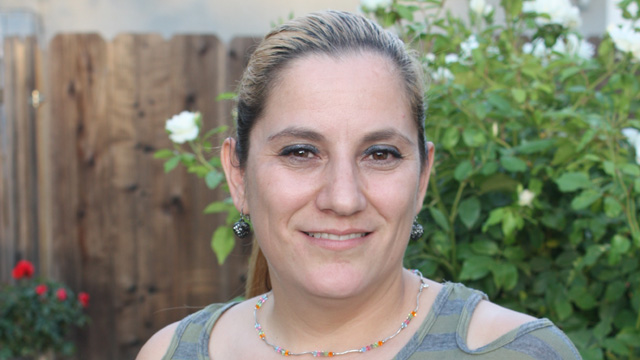She says the owner’s brother was responsible for the most abusive behavior during the sweet potato harvest:
“He would masturbate at work,” she says, grimacing. “He’d be going along in the tractor, and he didn’t care who saw it. Everyone would watch this happening. And we workers would say, ‘That’s gross,’ and he would say, ‘I’ve got some for you, too.’ ”
More in this series
Hernandez said she repeatedly complained to management about sexual harassment and other problems -- like filthy bathrooms and late payment of wages. In May of last year, she was fired.
“I said, ‘My God. This is incredible. I’m not in Mexico though, right? There are laws here, there is a way to get help,’ ” she recalls.
She called the Agricultural Labor Relations Board, a small state agency founded in 1975 to resolve labor disputes between farmworkers and growers. They sent out a team to interview her.
“There is a value to human dignity, in the same way that there is a value to your crops,” says ALRB general counsel Silvia Torres-Guillén. She’s the first Latina to head the agency. She is new to the job, and says she sees its mission as about more than mediating union disputes.
“Sexual harassment and sexual discrimination cases are definitely just as important as good wages, just as important as it is to have clean water or bathrooms,” she adds.
In May, Torres-Guillén filed her first unfair labor practice complaint relating to sexual harassment, against Elvia Hernandez’s former employer, the Sandhu Brothers farm. The ALRB can’t award damages to farmworkers or press criminal charges. But it can order back wages for workers like Hernandez if they were fired after complaining on behalf of fellow co-workers.
Jack Sodhi, the attorney for the Sandhu Brothers, disputes the allegations. He says they’re “so far-fetched it’s frankly unbelievable.” Farmworkers wouldn’t have stayed on the job at his clients’ farm, he says, if the conditions were so outrageous.
“There may be issues where there’s sexual harassment of farm employees, but it’s not taking place here and it’s unfortunate that the ALRB is focused on my clients, who have done nothing wrong,” says Sodhi.
He says the tiny Sandhu Brothers farm recently implemented sexual harassment training, something it chose to do voluntarily.
If it were a larger company, with 50 or more employees, California law would require training of all supervisors about sexual harassment for two hours every two years.
On a recent morning, about 30 farmers and crew supervisors, many in checked shirts and dusty cowboy boots, listen attentively at one of those trainings in a downtown Fresno hotel.
“This whole subject is about people with power using their power inappropriately to those that report to them,” explains trainer Amy Wolfe, as she confidently paces in front of the PowerPoint slide she has put up on the screen. She is president of Ag Safe, a group that conducts monthly trainings on farm safety.
One of the participants here is farm labor consultant James Randles. He’s former vice president of Hall Ag Enterprises, considered the largest farm employer in California, running crews in 30 counties. He says sexual harassment is a real problem in the industry.
“It’s enormous. It’s enormous,” says Randles, pausing in the hotel lobby after the training. “Recently I found out that there’s a lot of females that are having babies. And if you follow the trail, it’ll end up to a lot of the supervisors of the crews that they work for. I know this is not good for our industry, but it is rampant.”
Wolfe says that kind of acknowledgement signals a real shift. “Unfortunately, there is still very much a good ol’ boy attitude, but I definitely see improvements. I see more farmers today asking the question, where I think 15 or 20 years ago that wasn’t taking place,” she says.
The ALRB’s Silvia Torres-Guillén says Ag Safe’s trainings make a serious effort to address the problem. But she’s skeptical about trainings that employers conduct on their own. So, in the Hernandez case, she’s asking an ALRB judge to order Sandhu supervisors to come to her office for 20 hours of sexual harassment training and then be tested on what they’ve learned.
“So, it’s not about the piece of paper saying, ‘Yes, I have participated in sexual harassment training,’ which may have consisted of five minutes out in the field,” says Torres-Guillén, “but a really thought-out plan where you are role-playing, where you are presenting them with hypotheticals, and asking them, ‘How would you respond?’ “
The ALRB also has the unique ability to meet with workers in the fields, without supervisors present, and explain why the bosses’ behavior violated their rights. The judge will consider that option in the Sandhu Brothers case, and that’s what Elvia Hernandez wants to see.
“In all my heart, I want to see the day when my co-workers sit down and learn about their rights under labor law,” she says. “I want them to learn that they shouldn’t be scared, whether or not they have documents, they can complain.”
Elvia Hernandez’s case is set to be heard before an ALRB administrative law judge in August.
